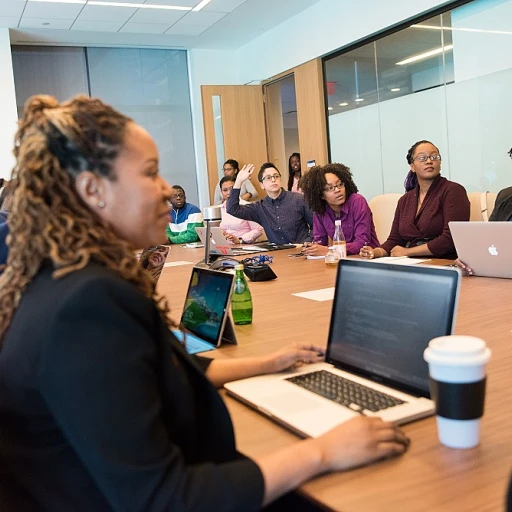
Key Responsibilities of a Volunteer Coordinator
Responsibilities That Define the Role
The role of a volunteer coordinator is pivotal in any organization that relies on volunteer services. This position involves a wide range of responsibilities, all aimed at ensuring that the volunteer program runs smoothly and effectively. Key responsibilities include:
- Volunteer Recruitment: A volunteer coordinator is tasked with recruiting volunteers, identifying suitable candidates for various roles, and ensuring they align with the organization's mission and values.
- Training and Orientation: Coordinators provide training and orientation to new volunteers, equipping them with the necessary skills and knowledge to perform their duties effectively.
- Volunteer Management: Managing volunteers involves scheduling, monitoring performance, and providing ongoing support to ensure their personal and professional growth.
- Policy Implementation: Coordinators ensure that all volunteers adhere to the organization's policies and procedures, maintaining compliance with legal and ethical standards.
- Data Management: Maintaining accurate records of volunteer data is crucial for effective volunteer coordination. This includes tracking volunteer hours, skills, and feedback.
- Communication and Coordination: Coordinators serve as the main point of contact between volunteers and the organization, facilitating clear communication and collaboration.
Understanding these responsibilities is essential for anyone considering a career in volunteer coordination. For more insights into the strategic aspects of human resources, check out our article on marketplace intelligence in human resources.
Essential Skills for Effective Volunteer Coordination
Essential Abilities for Effective Coordination of Volunteers
Becoming a proficient volunteer coordinator requires a specific set of skills that go beyond the job description. With the objective of managing successful volunteer programs, coordinators must leverage their skills to ensure efficient volunteer recruitment and management.
First and foremost, strong communication skills are essential. A coordinator oversees various tasks, including facilitating Volunteer Opportunities, liaising with third-party organizations, and guiding volunteers through policies procedures. Effective communication is crucial for these interactions.
Moreover, organizational skills play a vital role. Volunteer coordinators are responsible for juggling multiple tasks like service time organization, post job management, and volunteer recruitment. Maintaining a well-structured schedule helps prevent confusion and enhances productivity.
Another invaluable trait is adaptability. Coordinators often encounter unforeseen challenges that require quick thinking and flexibility. Being adaptable allows them to adjust strategies and maintain effective operations.
- Leadership abilities: Inspiring and guiding volunteers correctly ensures that personal services are rendered successfully.
- Legal knowledge: Understanding legal and policy frameworks surrounding volunteer work helps in managing compliance with related policies and procedures.
- Attention to detail: Managing data-related aspects accurately, such as volunteer personal data, is critical for seamless volunteer management.
Lastly, experience in volunteer management is a significant asset. This provides insights into effective coordination that only firsthand experience can offer, offering a better scope for optimizing volunteer services.
Challenges Faced by Volunteer Coordinators
Overcoming Hurdles in Volunteer Coordination
Volunteer coordinators play a vital role within organizations, but they often encounter several challenges in their work. Being aware of these obstacles helps in navigating them effectively and ensuring the volunteer program's success. One of the primary challenges is recruiting volunteers. Attracting individuals to commit their time and energy to a cause requires strategic volunteer recruitment efforts. Coordinators must craft compelling job descriptions that clearly describe volunteer opportunities and emphasize personal and societal benefits. This involves understanding the legal frameworks and policies procedures surrounding volunteer engagement, as well as articulating the job title roles and responsibilities. Aside from recruitment, volunteer retention can be a hurdle. Coordinators need to provide continuous support and opportunities for volunteers to feel valued and engaged, reducing attrition rates. This requires a keen understanding of the volunteers' personal motivations and ensuring that their experiences remain fulfilling over time. Volunteer coordinators also need to manage logistics, such as aligning volunteer availability with organizational needs. This task necessitates impeccable data management skills to ensure efficient and effective volunteer management. For instance, utilizing tools like the Montessori Compass can enhance organizational efficiency and streamline the volunteer coordination process. These tools aid in handling schedules, service records, and communication with third parties. To sum up, those in this vital coordinator job need to possess a comprehensive understanding of the challenges and employ strategic solutions, such as technology integration and effective data management. Encountering these hurdles not only influences the day-to-day operations but also impacts an organization's long-term success.Impact of Volunteer Coordinators on Organizational Success
The Influence of Volunteer Coordinators on Organizational Achievement
Volunteer coordinators play a critical role in bridging the gap between organizations and the community, thereby driving the overall success of the organization's mission. They are responsible for managing volunteer programs that deliver essential services, leading to a significant positive impact on organizational goals.- Enhancing Service Quality: The work of volunteer coordinators ensures that volunteers are effectively recruited, trained, and retained. By implementing thorough volunteer recruitment processes and maintaining a robust volunteer management system, they can tailor volunteer programs that meet specific organizational needs, improving service quality.
- Fostering Long-term Relationships: Volunteer coordinators are instrumental in creating personal connections between volunteers and the organization. Through effective volunteer coordination, they help establish a sense of belonging and commitment. This, in turn, encourages long-term engagement, which is beneficial to the organization's sustained success.
- Managing Resources Efficiently: Coordinators ensure that volunteers are placed in roles that maximize their skills and enhance job satisfaction. By aligning volunteer job descriptions precisely, they contribute to efficient resource management, ultimately boosting organizational productivity.
- Impact on Data-Driven Decisions: Through the collection and analysis of various data, volunteer coordinators provide insights into volunteer performance and the success of programs. This data will aid in refining policies procedures and contribute to strategic decision-making, aligning with the organization's objectives.
- Ensuring Policy Compliance: By staying informed about legal and policy requirements, including life insurance and other relevant policies, coordinators ensure that volunteer programs operate within legal frameworks. This compliance minimizes legal risks and enhances the organization's credibility.
Tools and Technologies for Volunteer Management
Technological Aids in Volunteer Coordination
In the realm of volunteer coordination, the use of specialized tools and technologies is instrumental in streamlining tasks and optimizing operations. Volunteer coordinators are turning to a variety of platforms to manage the complexities of volunteer recruitment and maintenance.
Effective Volunteer Management Platforms
- Volunteer Management Software: These platforms help coordinators manage personal data, track volunteer hours, and monitor the contributions of individuals. Coordinators can customize these applications to include data relevant to their specific volunteer program and ensure accurate reporting.
- Scheduling Tools: Time management is crucial, and scheduling tools provide a detailed overview of volunteer availability and assignments. This allows coordinators to efficiently distribute tasks among volunteers and ensure that all efforts are aligned with the organization's goals.
Data Privacy and Legal Compliance
While technology provides immense benefits, volunteer coordinators must also prioritize data security and legal compliance. Policies and procedures need to be in place to protect volunteer data. Coordinators should work in contact with legal teams to ensure compliance with privacy regulations and maintain the trust of their volunteers.
Enhancing Communication and Engagement
- Communication Platforms: Tools for communication, like emails and instant messaging services, are indispensable for maintaining contact with volunteers, providing updates, and sharing feedback. A good volunteer experience often hinges on effective communication.
- Feedback Mechanisms: Tools that allow for feedback and evaluation from volunteers help to improve services and volunteer experiences. Feedback can be gathered through surveys or direct communication, providing invaluable insights into the effectiveness of the volunteer coordination efforts.
By leveraging these technologies, volunteer coordinators can not only enhance their operational efficiencies but also boost volunteer satisfaction and engagement. Tailoring the right mix of tools according to organizational needs ensures that volunteer programs are not just functional but thriving, meeting the needs of both the organization and its volunteers.
Career Path and Development for Volunteer Coordinators
Career Growth and Development Opportunities
For those considering a career as a volunteer coordinator, understanding the potential for growth and development is crucial. This role not only involves recruiting volunteers and managing volunteer programs but also offers a path to various opportunities in the nonprofit sector and beyond.
Many organizations value the skills and experience that volunteer coordinators bring, such as effective communication, organizational skills, and the ability to manage diverse groups of people. These skills are highly transferable and can open doors to other roles in human resources, program management, and even executive positions.
Education and Experience Requirements
While specific educational requirements can vary, most volunteer coordinator positions require at least a bachelor's degree in a related field such as human resources, social work, or nonprofit management. Relevant experience in volunteer coordination or similar roles is often preferred, as it provides practical insights into the challenges and nuances of the job.
Continuing education and professional development are also important. Many organizations offer workshops and training sessions focused on volunteer management, policies, and procedures. These opportunities can enhance a coordinator's ability to provide effective volunteer services and adapt to new tools and technologies in volunteer management.
Professional Networking and Resources
Networking plays a significant role in the career development of volunteer coordinators. Joining professional organizations, attending conferences, and participating in online forums can provide valuable contacts and resources. These networks often share best practices, legal policy updates, and innovative strategies for recruiting volunteers and managing volunteer programs.
Moreover, staying informed about trends in the field, such as the use of data for improving volunteer coordination and management, is essential. This knowledge can help coordinators refine their strategies and improve their programs, ultimately contributing to organizational success.
Long-term Career Impact
The impact of a volunteer coordinator's work extends beyond immediate job responsibilities. By fostering a strong volunteer program, coordinators contribute to the overall success of their organizations, enhancing their reputation and effectiveness. This, in turn, can lead to personal job satisfaction and career advancement opportunities.
Whether working full-time or part-time, volunteer coordinators who excel in their roles often find themselves in demand, with opportunities to move into higher-level positions within their organizations or to explore new roles in different sectors. The skills and experience gained in volunteer coordination are valuable assets in any career path.













